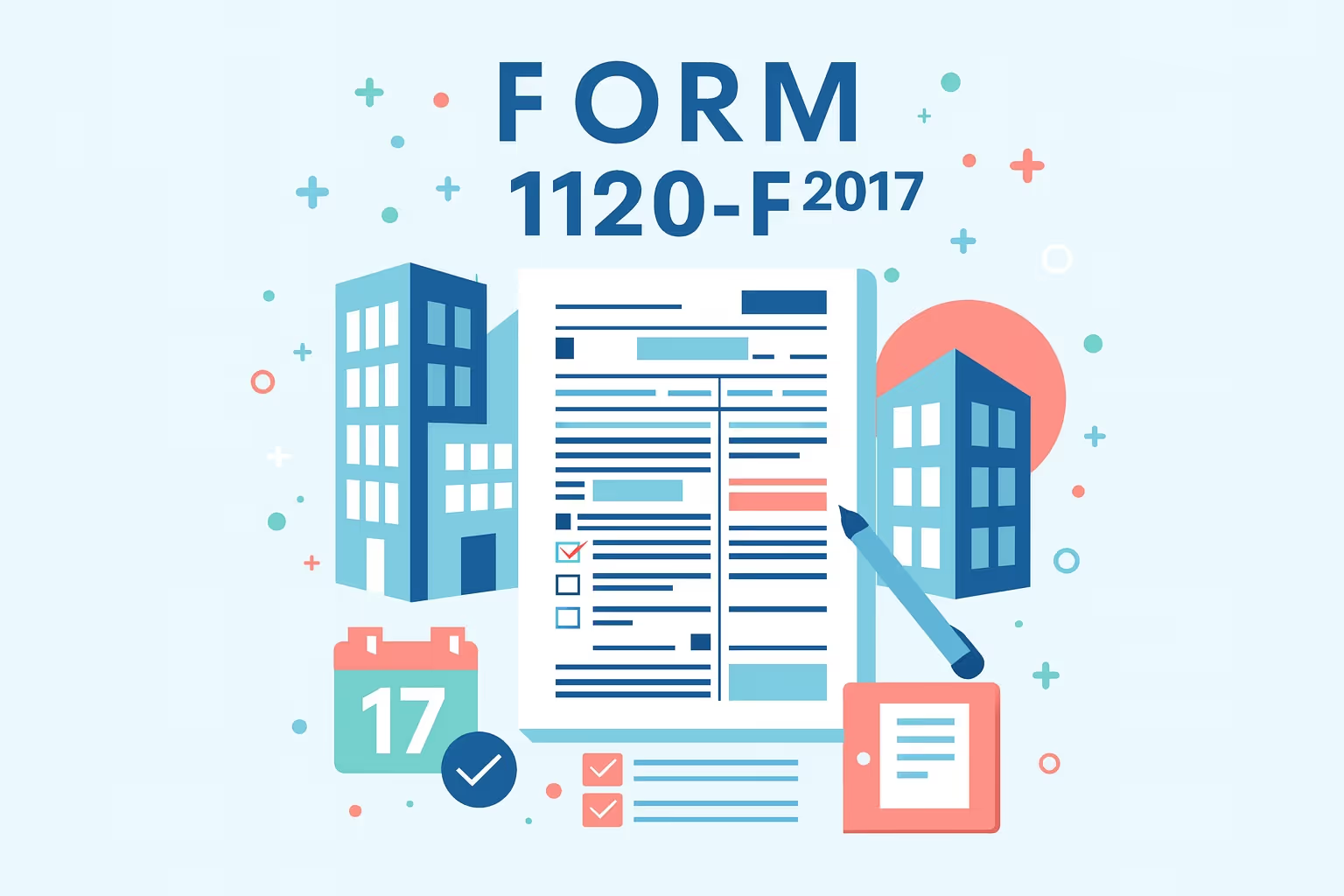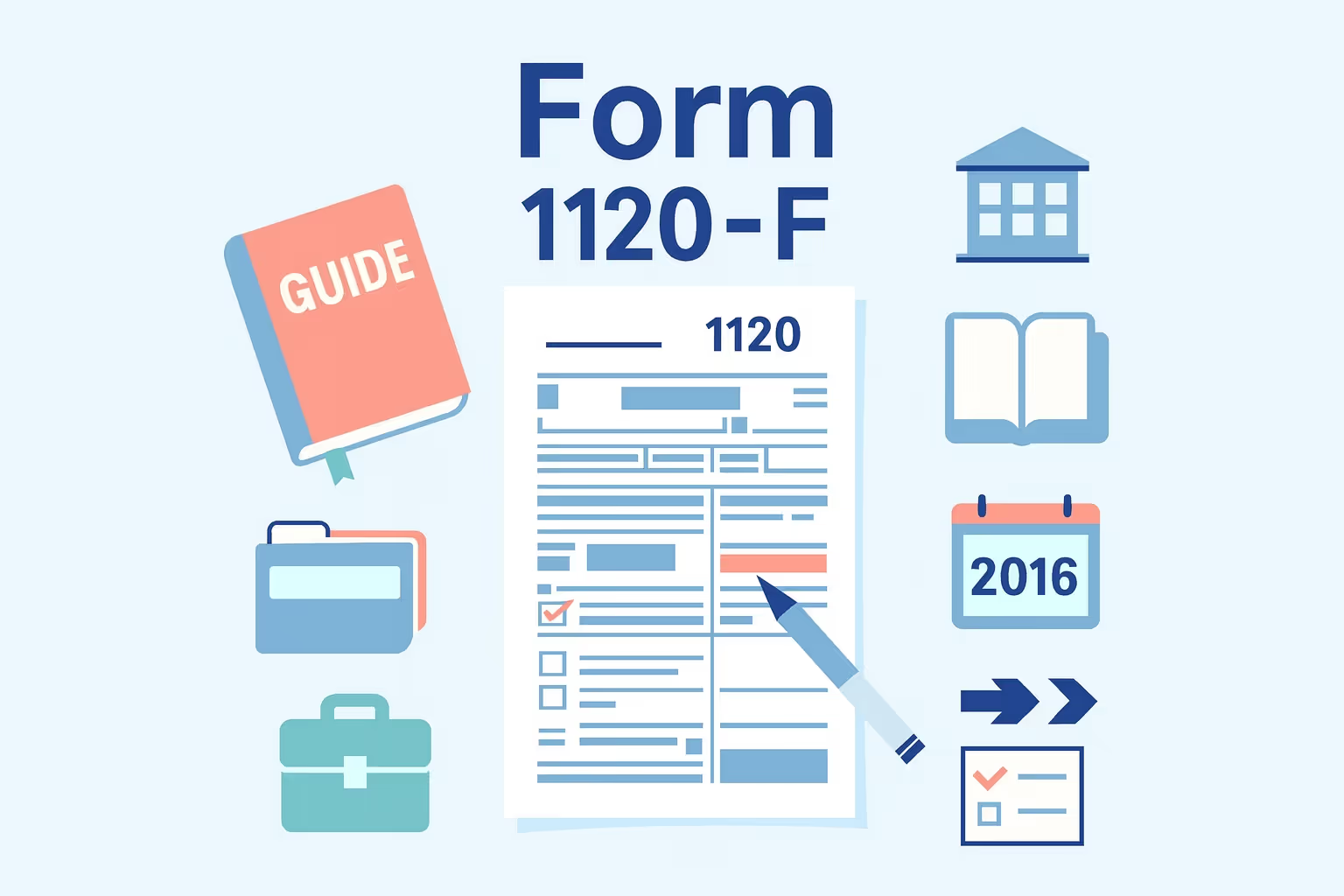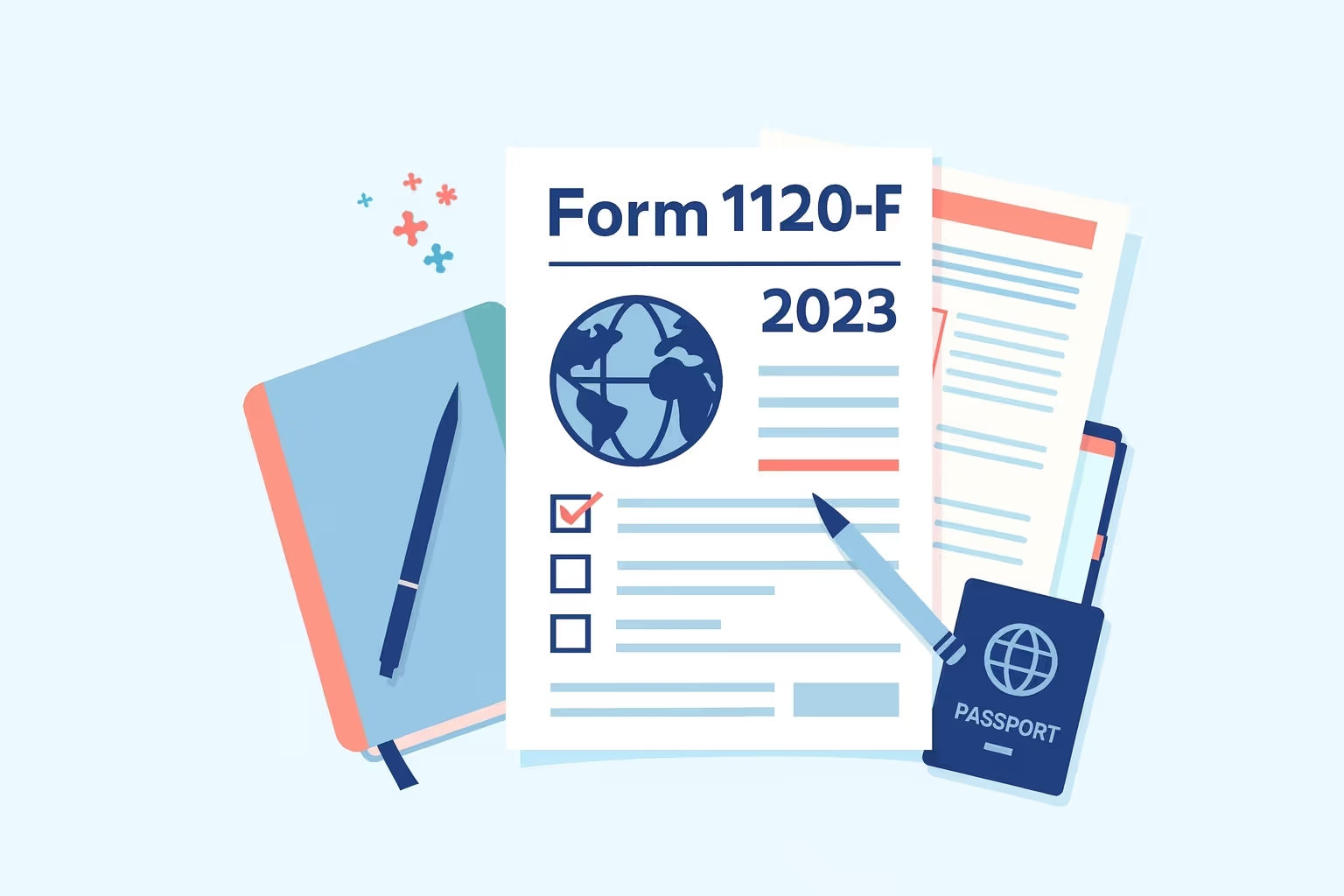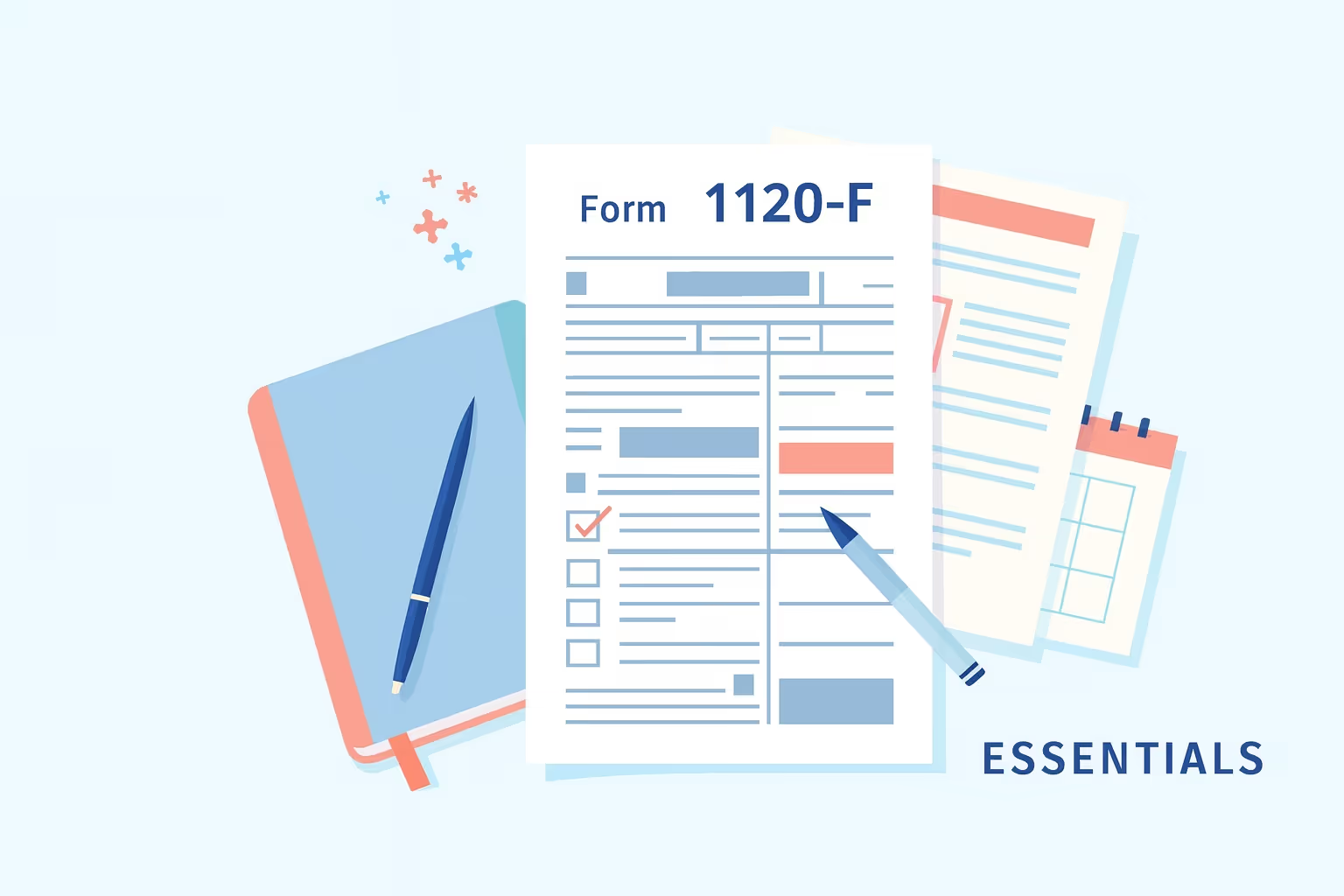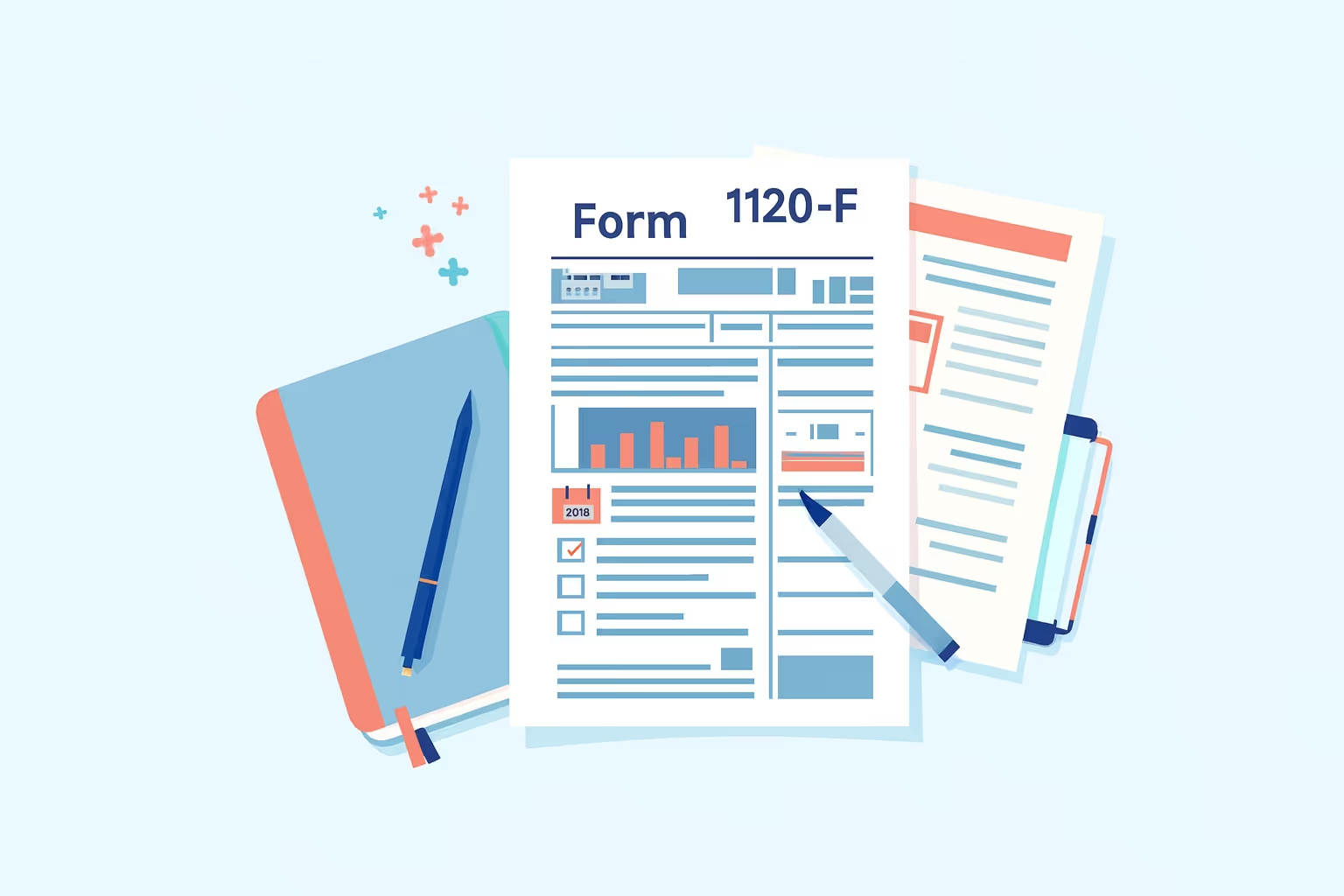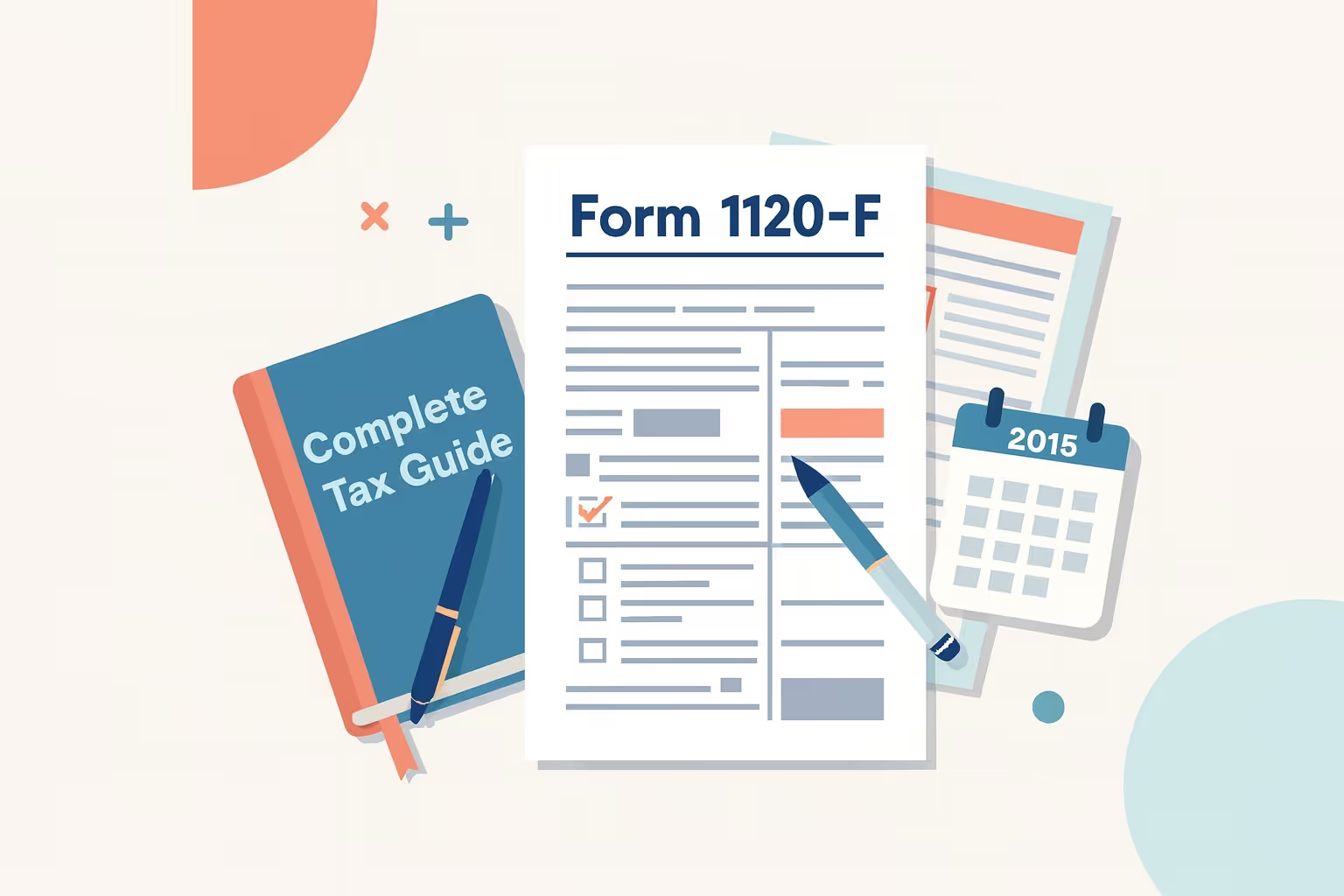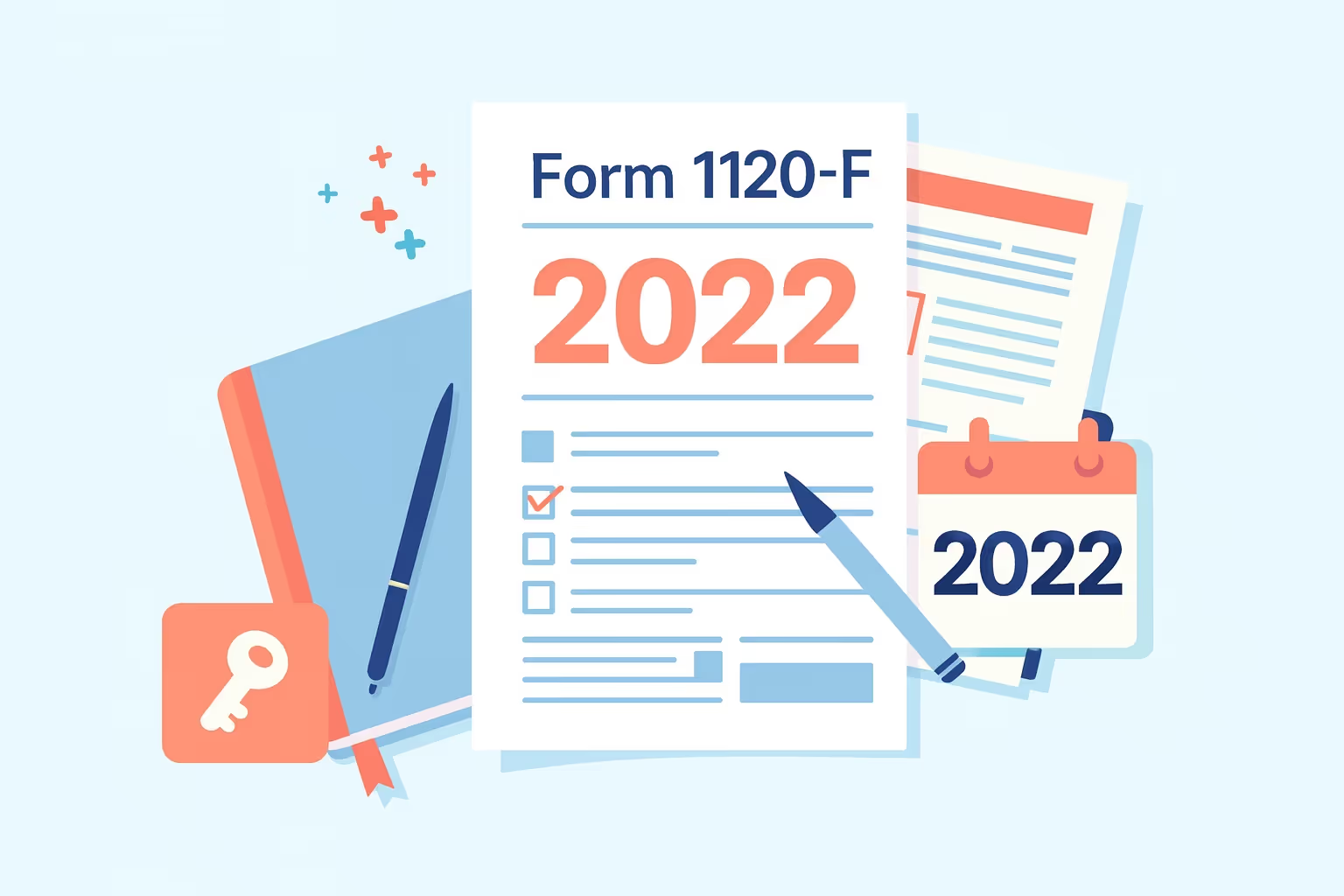
What IRS Form 1120-F (2018) Is For
IRS Form 1120-F (2018) is the U.S. Income Tax Return of a Foreign Corporation used to report taxable income, deductions, and credits under the Internal Revenue Code. It applies to any foreign corporation engaged in trade or business within the United States or earning effectively connected income during the 2018 tax year.
This filing ensures proper calculation of corporate income tax, including rules covering base erosion, foreign subsidiaries, and resident corporations. It also documents income and assets derived from U.S. operations to confirm accurate reporting for tax purposes.
Visit the IRS website to access your business income tax form.
When You’d Use IRS Form 1120-F (2018)
Corporations must file IRS Form 1120-F (2018) when they engage in U.S. trade or business activities and generate effectively connected income under the Internal Revenue Code. The form also applies to foreign corporations with taxable income linked to U.S. operations or assets during the 2018 tax year.
Common Filing Situations
Use this return if your corporation meets any of the following conditions:
- The corporation conducted business or provided services within the United States.
- The corporation earned taxable income through its U.S. branches or partnerships..
- The corporation owned foreign subsidiaries that received U.S.-sourced income or dividends.
- The corporation reported transactions that were covered by the Base Erosion and Anti-Abuse Tax.
- The corporation filed a late or amended return to correct taxable income or deductions.
Key Rules or Details for the 2018 Tax Year
The 2018 tax year introduced major reforms that affected how foreign corporations calculated taxable income and applied corporate income tax provisions. These updates aligned with the Internal Revenue Code changes implemented through the Tax Cuts and Jobs Act.
Corporate Tax Rate
The section on the corporate tax rate explains that all corporations, including foreign entities, became subject to a flat 21 percent corporate income tax rate, replacing the graduated rates.
Corporate Alternative Minimum Tax
The section on the corporate alternative minimum tax states that it was repealed, which simplified compliance for resident corporations and foreign subsidiaries operating in the United States.
Base Erosion and Anti-Abuse Tax
The section on the base erosion and anti-abuse tax explains that large corporations have to review cross-border transactions to ensure proper reporting under federal tax laws.
Step-by-Step Filing Process
Foreign corporations filing IRS Form 1120-F (2018) must follow a straightforward, sequential process to ensure accurate reporting of taxable income and compliance with the Internal Revenue Code. Each step supports proper documentation of U.S. trade, deductions, and business activities for the 2018 tax year.
Step 1: Gather Financial Records
The corporation should collect income statements, balance sheets, prior filings, and IRS transcripts related to its U.S. operations.
Step 2: Use the Correct Form
The corporation must use the official 2018 version of IRS Form 1120-F to calculate corporate income tax accurately.
Step 3: Attach Required Schedules
The corporation should include Schedules H, I, and P, and attach Form 8833 if it is claiming treaty benefits on foreign source income.
Step 4: Submit and Retain Copies
The corporation must file electronically or mail the return to the Ogden, Utah, Service Center and retain signed copies for future audits or correspondence.
Common Mistakes and How to Avoid Them
Filing IRS Form 1120-F (2018) requires precision to ensure compliance with the Internal Revenue Code and accurate calculation of taxable income. Foreign corporations often face common errors that delay processing or increase tax liabilities. Reviewing each point below helps improve accuracy and reduce potential issues.
- Missed Deadlines: The corporation should file Form 1120-F on or before the deadline to preserve deductions and avoid additional interest charges.
- Incorrect ECI Classification: The corporation must review all income sources and report only income that is effectively connected with a U.S. trade or business to ensure accuracy.
- Missing Attachments: The corporation should confirm that all required schedules, statements, and Form 8833 are attached before submitting the return.
- Unsigned Forms: The corporation must have an authorized officer review and sign the return before submitting it to ensure its validity.
- Incorrect Tax Year Form: The corporation should verify that it uses the correct version of Form 1120-F for the tax year to prevent errors in filing or calculation.
What Happens After You File
Once a corporation files IRS Form 1120-F (2018), the IRS reviews the return to verify income, deductions, and foreign source income under the Internal Revenue Code. The agency checks supporting schedules and financial statements to ensure compliance with reporting rules. If discrepancies arise, the corporation may receive correspondence requesting clarification or additional documentation.
If the return shows a balance due, the IRS assesses corporate income tax and applies interest under Section 6621 until full payment is received. Corporations can request an installment plan using the appropriate form for structured payments. Timely responses to notices help maintain good standing and avoid delays in case processing.
Corporations should retain copies of all submitted forms and schedules for future audits or as needed for inquiries. Maintaining complete records strengthens compliance with U.S. tax regulations and supports future filings.
Frequently Asked Questions
Can a foreign corporation still file IRS Form 1120-F (2018)?
Yes, a foreign corporation that earned effectively connected income from U.S. trade or business activities can still file IRS Form 1120-F (2018) if the tax year remains open under the Internal Revenue Code. Filing helps document taxable income and deductions tied to U.S. operations for accurate corporate income tax reporting.
What if a corporation missed its filing deadline for the 2018 tax year?
Corporations can request relief through reasonable cause provisions under federal tax laws. Filing late may affect deduction eligibility, but timely communication with the IRS supports compliance and reduces potential interest on unpaid taxes.
Do foreign subsidiaries of resident corporations need to file tax returns?
Yes, foreign subsidiaries engaged in U.S. trade, earning taxable income, or receiving U.S.-sourced dividends are required to report under the same federal regulations that apply to foreign corporations.
How did the Tax Cuts and Jobs Act impact 2018 filings?
The Jobs Act reduced the corporate income tax rate to 21 percent, repealed the corporate alternative minimum tax, and introduced the Base Erosion Anti-Abuse Tax (BEAT) for multinational corporations. These reforms changed how taxable income and deductions were calculated under the Internal Revenue Code.
Can a corporation request a payment plan for taxes owed?
Yes, corporations can arrange an IRS or Illinois state tax payment plan for employment or business taxes when unable to pay in full. The plan divides owed balances into structured payments, helping maintain compliance and avoid enforcement actions.
For a detailed breakdown of filing requirements, eligibility rules, and step-by-step instructions, see our Form 1120-F (2018): Foreign Corporations Tax Return.




















